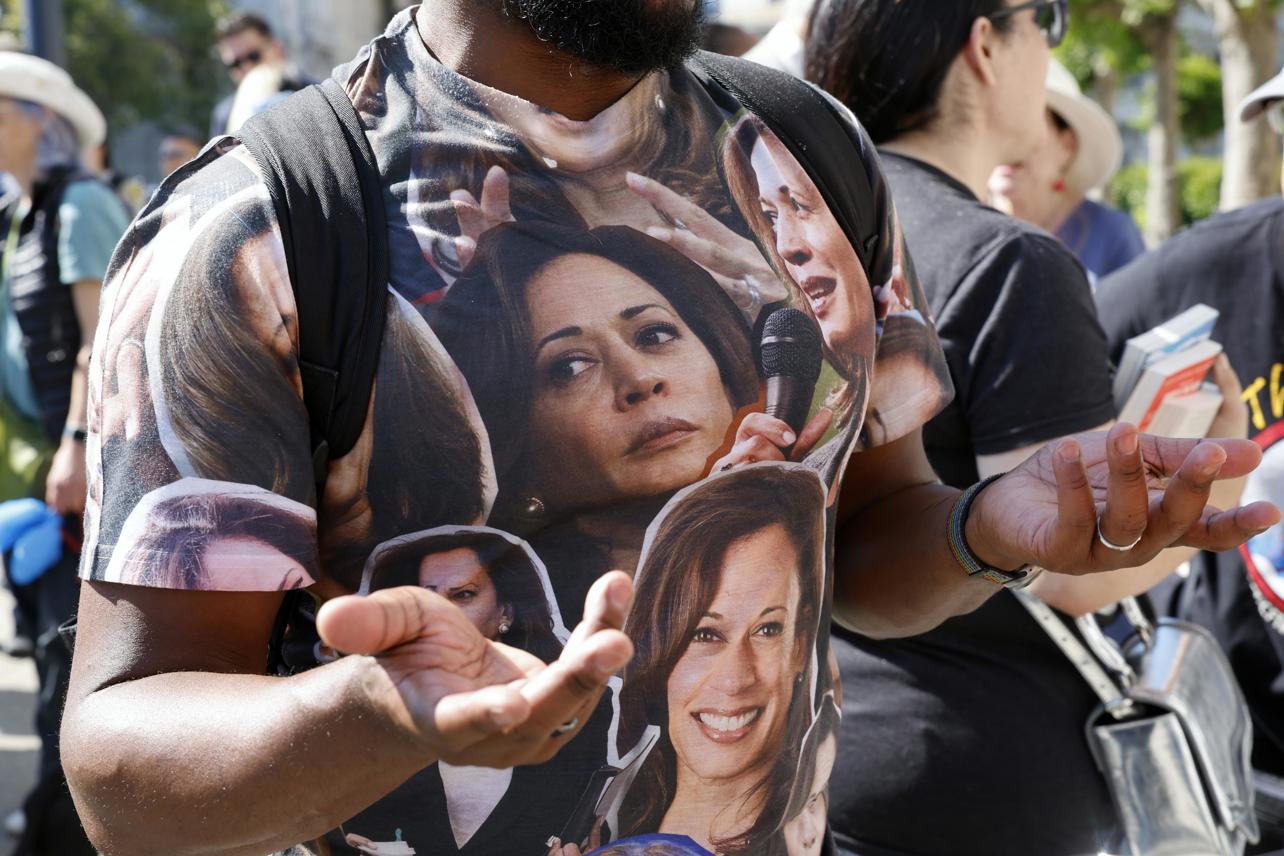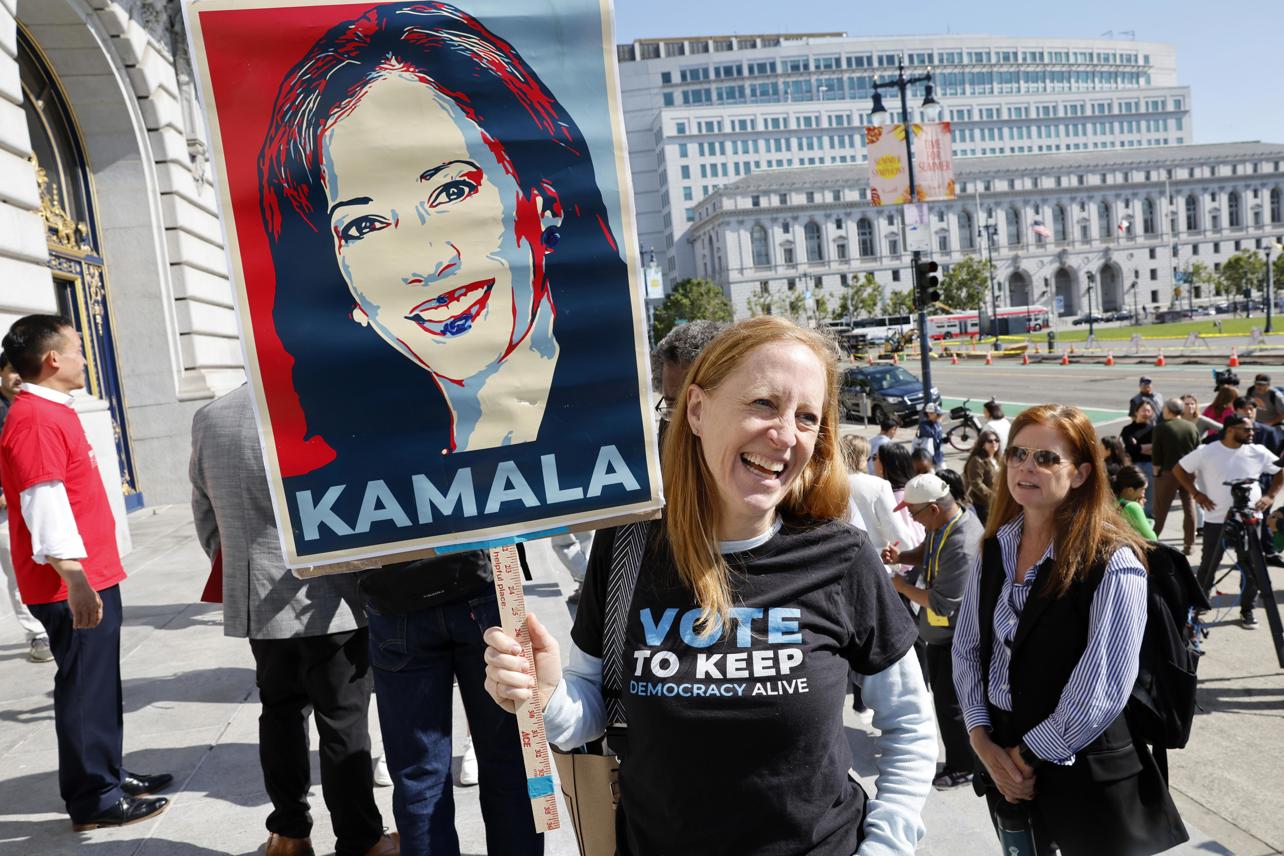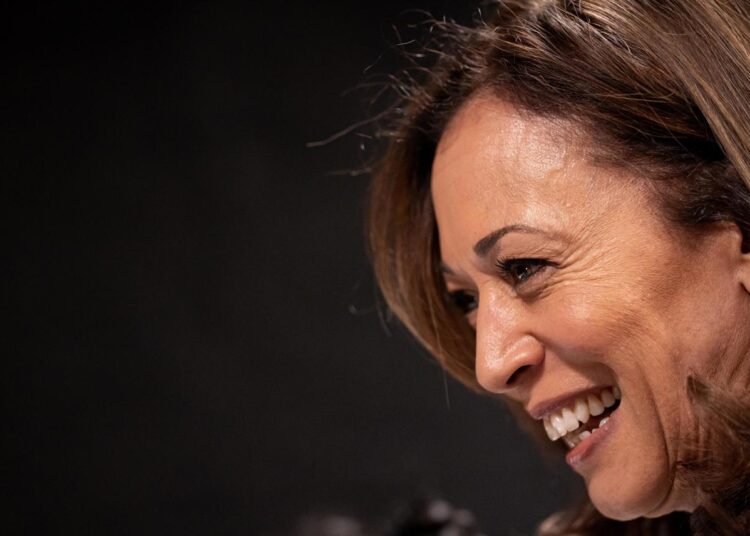Joe Biden’s resignation from his candidacy for presidential re-election is one of those events that delight any prospective political analyst. The decision to support the nomination of Kamala Harris, current vice president, if confirmed ― as in principle would be expected ― by the Democratic Party National Convention, between August 19 and 22, opens a set of new possibilities and dynamics on the U.S. political scene.
At the same time, given that the United States continues to be, with some ease, the main superpower at a global level, the rise of Harris has strong impacts on international relations as a whole and is currently arousing, in a frenetic way, the attention of the political leaders and analysts from foreign ministries and intelligence services around the world.
In the immediate future, Donald Trump remains the favorite to win the elections on November 5. Biden’s decision, surely made unwillingly, is late. The president’s infatuation caused precious time to be consumed in the process of internal political negotiations and the accumulation of pressure from the heavyweights of the Democratic Party to make the veteran Delaware politician withdraw from the electoral race.
Volatile situations
However, one of the most notable features of contemporary politics during recent decades, both nationally and internationally, is the acceleration of processes and the rapid modification of current conditions, as a result of the explosion in the massive use of the media and social networks, as well as unstoppable globalization (whatever may be said about the supposed end of this phenomenon).
In this way, as part of this global macrotrend, the pre-electoral political scenarios in any country — even one with continental dimensions and with pronounced neo-isolationist tendencies like the United States — can be profoundly transformed in a few days. What happened recently in the elections in France is a lesson.
The decision to promote Kamala Harris to the presidential candidacy could eventually represent a turning point (a game changer, according to prospective terminology in English) in the current U.S. electoral process.

What has Kamala Harris said about Cuba?
When evaluating the impact of a possible Kamala Harris electoral victory on the United States’ Cuba policy, the first thing that should be recognized is the lack of evidence or antecedents to form a well-founded forecast.
However ― and here lies the encouraging part ― the few existing precedents point in an essentially positive direction, in the direction of opening a new opportunity to resume the path traveled during the last two years of the second Obama administration, abruptly interrupted during the Trump administration. This, apart from some of Harris’s statements regarding the human rights situation and political repression in Cuba, which have surely not been to the liking of the Cuban government.
In 2019, as a presidential candidate for the Democratic Party for the 2020 elections, Kamala Harris responded to a Tampa Bay Times questionnaire on issues of interest to the state of Florida. When asked whether she would eliminate or continue the “trade embargo” against Cuba, her team’s response was: “Senator Harris believes we should end the failed trade embargo and take a smarter approach that empowers Cuban civil society and the Cuban American community to spur progress and freely determine their own future..”
Subsequently, in an interview with the EFE news agency published in El Nuevo Herald on October 27, 2020, the then-Democratic candidate for the vice presidency of the United States assured that if she and her running mate (Joe Biden) reached the White House, they would repeal the restrictions imposed by Donald Trump on Cuba. “We,” Harris explained, “will reverse Trump’s failed policies. And as he previously did as vice president, Joe Biden will also demand the release of political prisoners and make human rights a centerpiece in diplomatic relations.”
On the other hand, she also observed: “The embargo is the law; a Congressional act is needed to lift it or the president needs to determine that a democratically elected government is in power in Cuba. We don’t expect any of these things to happen anytime soon.”
In the same interview, the then-senator from California criticized Trump’s immigration policies toward Cubans. “Trump is deporting hundreds of Cubans back to the dictatorship and back to regime repression that has only increased under his presidency. There are almost 10,000 Cubans who are languishing in tent camps along the border with Mexico due to Trump’s anti-immigrant agenda,” she stated. She also accused the then-Republican president of “separating Cuban families through restrictions on family visits and remittances.”
On July 22, 2021, in a post on Twitter (now X), Harris expressed her support “for the Cuban people and their right to peacefully protest and to decide their own future,” while alluding to the sanctions announced by the Biden administration “against the members of the Cuban regime responsible for this new repression,” about the events that occurred in Cuba eleven days earlier.

Generational change
Beyond these critical statements about the Cuban government, the fact is that Kamala Harris has been remarkably sparing in her statements about Cuba during her vice-presidential mandate, which could reflect ― and at this point I am only speculating ― a certain discomfort or dissatisfaction with the policy maintained by the Biden administration, characterized by the obvious failure to comply with the promises of the previous electoral campaign.
In any case, the simple fact that Joe Biden — born in 1942 — is an old cold warrior, while Kamala Harris — born in 1964 — belongs to a generation with a different vision of the world, could determine a very important difference in presidential policy towards Cuba, obviously for the better.
On the other hand, it should be noted that the signs supporting a more positive (or less negative) Cuba policy are not limited to the figure of the current vice president. Because of that “you can tell who someone is by the company they keep.”
What to expect?
Philip H. Gordon, her National Security Advisor, is the author of the book Losing the Long Game, a forceful criticism of U.S. regime change policies in other nations.
Although this 2020 publication focuses on the Middle East region, it contains several historical references to Cuba, in order to illustrate the ineffectiveness and unforeseeable negative consequences — both for the affected nations and for the interests of the United States — of the regime change policies. In contrast to them, Gordon argues in favor of the application of policies based on diplomacy, negotiation and constructive engagement.
It is evident that none of the elements mentioned above are a guarantee that, in a possible Kamala Harris administration, the United States will resume the path taken during the Obama administration or, at least, try to get closer in some way. But after four horrific years of Trump policy and another four years of utterly disappointing Biden policy, hope is the only thing we have left to lose.











“Sen. Harris was a co-sponsor of the Freedom for Americans to Travel to Cuba Act which would prohibit U.S. citizens from being restricted from traveling to Cuba in 2017 and most recently in 2019 .”
— Center for Democracy in the Americas, U.S, Cuba News Brief (4 years ago)
Thank you for recalling this.
Realmente es más de lo mismo, nunca hubo más esperanza para el pueblo cubano que cuando Obama cambió la política de su país respecto al nuestro. De momento de la noche al día Cuba salía de la lista de países patrocinadores del terrorismo y otras medidas más que serían revocadas por Donald Trump cuando le convino. En fin, cuando Biden salió todo el mundo vio con buenos ojos que el presidente electo haya sido el vicepresidente de Obama, pues lo lógico es que retomara con más ímpetu la política de su predecesor pero nada de nada. Todo esto demuestra que los intereses en ese país son muy mezquinos y todo es una conveniencia. Ojalá me equivoque. Gracias
I am awaiting a reply from Harris on her Cuban policy.
Biden lives in with a world view rooted in the 50s cold-war era. I am glad he is resigning. I expected a more enlightened foreign policy from him and his cohorts.